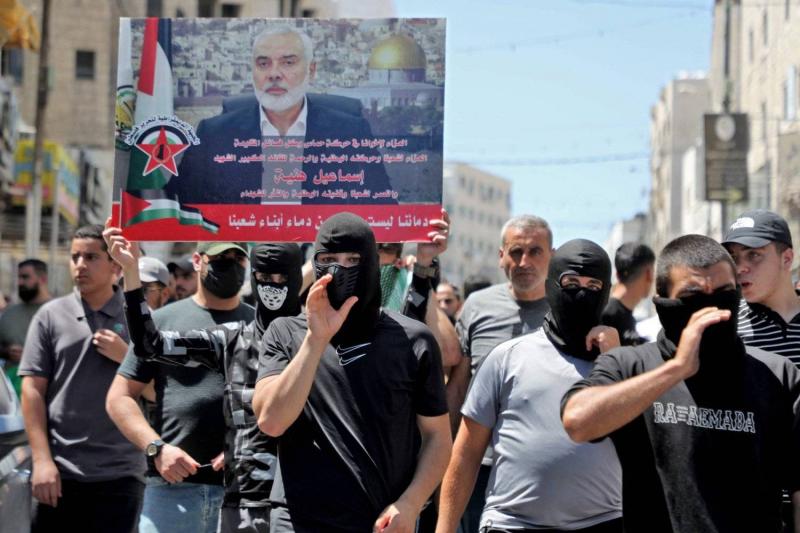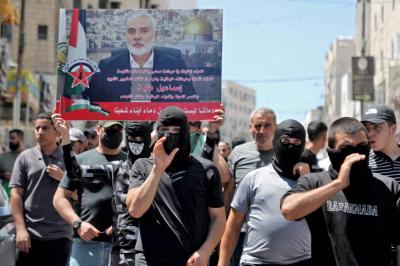The assassination of Hamas political bureau chief and former Palestinian Prime Minister Ismail Haniyeh is neither surprising nor strange to the Israeli government. The elimination of adversaries who impede Israeli ambitions is an old method that dates back even before the establishment of the Hebrew state. The assassination of Lord Moyne in Cairo during World War II serves as a prime example; he was preparing a report on conditions in Palestine and showed no bias towards Zionist activities in the region, leading to his assassination in Zamalek. It is now well-known that they sent a Mossad cell to Cairo following the end of the 1948 war to assassinate King Farouk due to his decision to go to war against them. While the events preceded the deployment of the cell — as the king abdicated and left Egypt on July 26, 1952 — the cell remained dormant until it acted in 1954 against American installations in Egypt, which was revealed in what is historically known as the "Lavon Affair."
After the 1948 war and the signing of the first truce the following year, they were behind the assassination of Lebanese leader Riad Al Solh in Beirut. They have always operated on all fronts. This is regarding the operations that have been uncovered; what about those that remain secretive and hidden, which are numerous?
The assassination of Palestinian figures and symbols has occurred frequently, with Yasser Arafat and before him Khalil Al-Wazir, also known as Abu Jihad, as examples. Thus, Haniyeh's assassination, along with his companion, is not strange to them and should not be surprising to those following the Palestinian cause.
Israel has an increased intelligence-gathering activity, even regarding seemingly insignificant information that bears no political or military implications. Information may not be directly useful but may be sold or used in some negotiation, much like the information about Soviet Premier Nikita Khrushchev’s speech at the Communist Party conference where he condemned the atrocities of his predecessor Joseph Stalin. This speech was classified and highly significant for American intelligence and administration; Israel obtained it from the secretary who transcribed it and gifted it to the White House.
Information can also serve as a morale-breaking message and undermine self-confidence, as was the case with Egypt during the War of Attrition, when Israeli radio announced the questions for high school examinations, causing a retake and stirring anxiety among state officials, including President Gamal Abdel Nasser himself. We should also recall that Israel announced the death of President Hafez al-Assad before Syrian state media did; when Al-Ahram newspaper inquired about it, General Mustafa Tlas, Assad's close associate, noted that Israel noticed many people entering and exiting the president's residence and inferred accordingly.
This does not mean that Israel is infallible in intelligence or invulnerable to infiltration, as evidenced by the great crossing and the destruction of the Bar Lev Line in October 1973. In the first confrontation between Hamas and the Israeli army, Haniyeh was in Gaza, and it was rumored in some Israeli newspapers at the time that the field commander of the operation requested permission to arrest him or demolish the house with everyone inside, but his request was firmly rejected.
In the current confrontation, Haniyeh appeared as a pragmatic political leader and gained significant acceptance from both the Egyptian and Qatari sides. Through them, he became heard in Washington and possibly the United Nations, importantly, he was serious about negotiations and resolving the crisis. Recently, he made statements indicating acceptance of a two-state solution. Even before October 7, he attempted to present a reconciliatory discourse with regional countries, especially Egypt and Saudis. If we review his previous statements in an interview with Al-Masry Al-Youm, he emphasized that Hamas is a "national liberation movement," adding, "with an Islamic reference," asserting that liberating Palestine is their sole concern with no link to anything else.
In recent years, he earnestly tried to present a narrative that reconciles the national spirit and idea with Islamic values. The truth is that there is no contradiction between them, regardless of how successful he has been or how the attempts were received by others on both sides. There are also doubts about his credibility, with allegations that he and his movement participated in disorder and sabotage in Egypt on January 28, 2011. In the end, he tried to focus on the Palestinian issue, understanding well the implications of the failure of the Mokattam office in Egypt and the overwhelming rejection of that dismal experience by Egyptians.
He was received at the highest levels of the intelligence community, and the catastrophe of the recent invasion of Gaza melted a lot away, making him an accepted and active figure. Such a model embarrasses Israel and is undesirable for them; they prefer the "Sinwar" model, which revives within them memories of the holocaust, shifting the issue from an occupied land and the threatened Palestinian people to anti-Semitism and such. The late Ismail Haniyeh's model does not satisfy the hawks within Hamas and others, those who claim, "We will burn everything." Thus, it was not strange for Yahya Al-Sinwar to insist on embarrassing him in negotiations, often rejecting what was agreed upon with a single word.
It is now no longer a secret that Hamas's attack on October 7 occurred without consulting the leadership abroad, especially Ismail Haniyeh. It is also no longer a secret that mocking statements about foreign leaders, especially him, originated from hawks within, claiming comfortable living in seven-star hotels between Istanbul and Doha, sometimes traveling on private jets, enjoying lavish meals and extravagant lifestyles; this was echoed by Hamas's opponents, but the hawks in the movement were the first to say it, thus creating this narrative for others.
Israeli Prime Minister Benjamin Netanyahu aims to reach the hostages not through negotiation, as Egypt and Qatar are trying for which Haniyeh was active and effective, but through incursion and Hamas’s surrender. Tehran was the perfect place for executing the operation. Clearly, the Mossad has a strong and effective presence there; they have previously carried out several operations without opposition. On one occasion, Iranian President Ahmadinejad remarked that the head of Iranian foreign intelligence was, at one time, recruited for Israel’s sake.
This time, we are faced with a bizarre event; immediately after the assassination was announced, a statement attributed to sources within the Iranian Revolutionary Guard surfaced, claiming that an aerial projectile was launched from outside the country. It was later justified that the desert border areas are expansive and "beyond Iranian radar coverage," which, if true, means part of Iran is completely exposed from an intelligence and military perspective. Just hours later, before the end of the day, one of the Israeli channels announced based on some of its sources that the rocket was launched from within Iran, not from a neighboring country or a ship.
On the third day, The New York Times, citing several sources, some from within Iran, revealed that a bomb had been planted in Haniyeh's bedroom two months prior and detonated remotely once it was confirmed he had gone to bed. To this extent, there is an intelligence breach and exposure that led some of our colleagues to go far with the claim that Haniyeh's assassination was a “joint operation,” Iranian-Israeli, which is difficult to accept given the available information, yet cannot be completely ruled out, as shadowy relationships contain deep tunnels. Here arises the question of the level of collaborators and their reach or influence within the Islamic Republic.
The most important message from Israel is that it is indeed present inside Tehran and within the very secure locations of the Revolutionary Guard, moving freely without any normalization agreements or peace treaties. Moreover, the former Palestinian Prime Minister and Hamas political bureau chief remained safe in Istanbul, Doha, and during his visits to Cairo or Amman. He was in complete safety even while within the occupied Palestine; however, in Tehran, he was completely exposed to Israeli Mossad, and his assassination was waiting for him.




